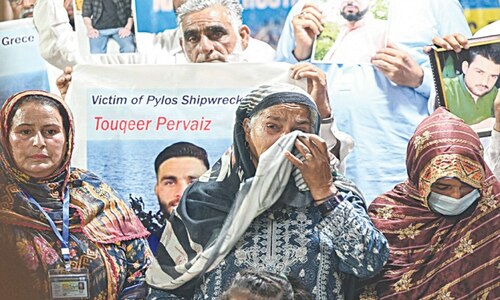FAISALABAD, April 9: Newly-appointed University of Agriculture Vice-Chancellor Dr Bashir Ahmed has said the introduction of new courses in mathematics, computer, environment, WTO, MBIT, MS will figure on top of his agenda.
Besides, internship opportunities and update and revision of existing courses will be high on the list. Talking to Dawn, Dr Bashir said that steps were also being taken to introduce some additional aspects in the system for improving the faculty performance and learning.
For achieving these objectives, he said, the committees at the faculty level had been constituted for monitoring and providing guidance to the faculty members throughout the academic year. About the research activities in the agri varsity, he said that a number of projects were under way which would prove instrumental in boosting the agricultural sector.
He said that a series of reforms had already been introduced to facilitate academicians and scientists so as to develop a kind of review system for ensuring real contribution to academics and research.
He further said that he was keenly interested in improving the teaching and research skills of the existing young faculty by arranging refresher modules and training facilities within and outside the country.
The establishment of quality infrastructure for quality teaching and research was a vital ingredient which could improve the standard, he said. Qualified, well-trained, highly motivated and enthusiastic human resources were the pillars of any institute of higher learning.
Therefore, he said, attention would be paid to the development of competent faculty for maintaining the quality of higher education in line with international dimensions.
Attracting committed scientists to the university as faculty members and providing them congenial environment and facilities associated with incentives for carrying out the assigned tasks would be the corner stone of his policy, he said.
For efficient transfer of knowledge, he said the faculty would be bound to reap the real benefits of information technology at all levels of teaching and research.
Senior faculty members, he said, would be provided every opportunity to acquaint themselves with the latest advancements in their respective disciplines through short and mid-term trainings both at national and international levels.
Encouragement and motivation of the faculty to win national and international research grants for strengthening their linkages with sister institutions and foreign universities through collaborative research projects were also being given priority.
He said that his next priority was to refine and redesign the curricula of all sciences taught at the campus on a regular basis to meet the emerging challenges.
Initiative had been taken in the university to introduce the system of preparing course outlines covering complete details of contents and books to be made available to students at the start of academic research session, as was being practised in universities of the developed world.
Efforts, he said, were also being made to introduce assignment culture for better and practical training of students. Dr Bashir revealed that the task to link the university library with those of libraries of the world's leading universities had also been entrusted to a team of experts.
He said that their future research would be centred on the issues like WTO, agri-business and marketing aspects of various agricultural commodities, integrated pest management, local production of hybrid seeds and water economy through better management.
From the outset, he said the faculty members had been complaining of not being allowed to contribute to the overall prosperity and progress of the agriculture sector by limiting its scope to teaching sector only.
He said that India, on the other hand, was much more advanced in agriculture because the agricultural university there was empowered not only to do research and extension, but also to play a major role in formulation of agricultural policies in the East Punjab (India).
He said that their future research would be centred on the issues like WTO, agribusiness and marketing aspects of various agricultural commodities, integrated pest management, local production of hybrid seeds and water economy through better management.
From the outset, he said the faculty members had been complaining of not being allowed to contribute to the overall prosperity and progress of the agriculture sector by limiting its scope to teaching sector only.
He said that India, on the other hand, was much more advance in agriculture because the agricultural university there was empowered not only to do research and extension, but also to play a major role in formulation of agricultural policies in the East Punjab (India).










































Dear visitor, the comments section is undergoing an overhaul and will return soon.